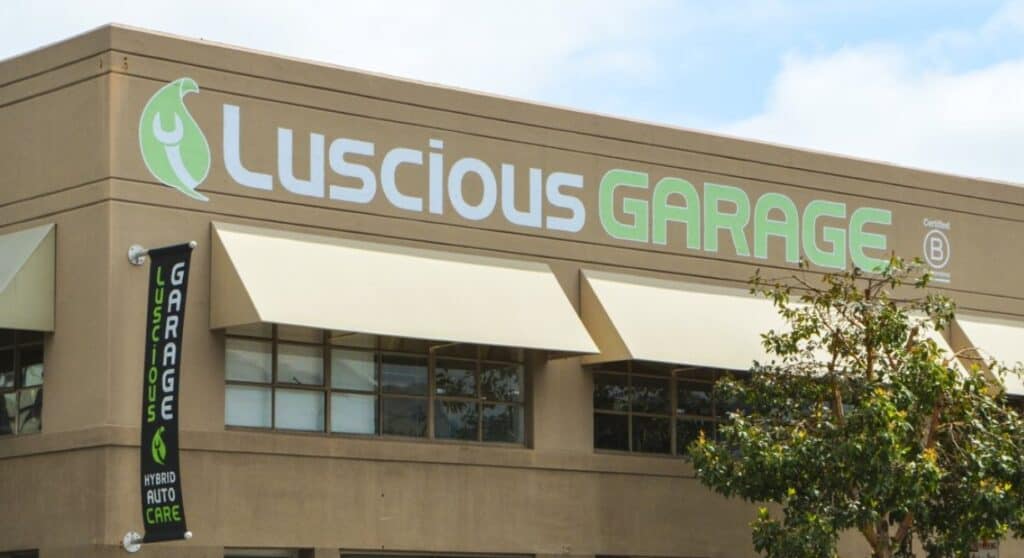Luscious Garage does a lot of work on the Prius, and by “a lot” I don’t mean every other day or so. I mean the vast majority of the cars we work on, and on some days, every car.
Among taxis, that focus is even more sharp. SF taxicabs are nearly all hybrids, and the vast majority of owner-operated cabs (about half of SF’s taxi fleet, or 750 cars) are Prius. These are also our customers.
For 18 months we have operated a second-shift, overnight, seven days a week, dedicated to hybrid taxis. We currently employ four technicians on night shift alone. This means that at least 70 hours of every week LG services Prius running nonstop in one of the most challenging urban environments, on top of the 50 daytime hours serving those privately owned.
Of the Prius taxis we currently service (as of this blog), the majority are over 200,000 miles. Many are near or have past retirement at 325,000 miles. Some of our oldest customers are already half way through the allowable term of their second Prius taxi.
In short, we are highly familiar with the patterns of Prius taxi repair. Transaxles failing from every angle, HV batteries down to the last electron. Engine side, we regularly see blown head gaskets and oil consumption up to 1 quart per day. Combination meters, warning lights, wiring trouble of any flavor. Double salvage vehicles. Every trouble code in the book. Prius with critical problems layered on top of tolerable problems that have been going on for months.
Not to mention the incessant parade of bad headlights, tires, brakes, struts, radiators, wheel bearings, and water pumps. Between both day and night shift we see between 40-60 cars every day, of which the vast majority are Prius. Of those cars, easily a third are Prius taxis, with high demand for auto service.
It can be hard to tell, looking at a website, how much work a shop performs, or how much they truly specialize. While our services differ between private and commercial Prius (they have inherently different priorities) our taxi service affords us exceptional expertise into vehicle failures, a kind of Prius proving ground. Many times private owners have expressed their respect and appreciation for our taxi service, not only because it speaks to our unbiased focus on hybrid repair, but because it means we can handle anything.
Having read this far, let me reward you with my point: Prius taxis are common in San Francisco, and increasingly common elsewhere, because they are strong, safe, and economical cars. They are not always easy to understand, but the repairs themselves are straightforward and the parts accessible (it is a mainstream car with a mainstream parts supply). All cars break, hybrid or no; I am not suggesting hybrids are more vulnerable. Quite the opposite: if they weren’t suitable as taxis, you simply would not see them being used as such, and the fact that they are speaks volumes.
As taxis are increasingly Prius, the more Prius (and hybrids in general) are accepted as worthwhile technology, rather than a flash in the pan. This is a call to mechanics to get trained, as taxis do not frequent the dealer. Further, these are the cars that need your help the most.
On a visit to Boston last fall, I witnessed mostly Camry Hybrids at the airport taxi stand (and grilled my driver on repair shops in the area). Besides Toyota hybrids (Prius as well as Camry and Highlander), LG also sees a lot of Nissan Altima Hybrids and Ford Escapes (fewer Fusions right now, but the wave is coming). The Prius taxi may be especially popular in Northern California given the plethora of privately owned ones. I do get calls from taxi fleets/shops across the country (Chicago, Orlando, Denver, Houston) wrestling with oddball problems, desperate for a tip (half the time I’ve never seen the problem myself, which speaks to regional issues and the caliber of taxi shops to fix problems). The Prius V may be perfect as a taxi, or maybe not. It doesn’t have to be Prius for the overarching emphasis to be true.
As a shop owner, technician, and environmentalist, I am proud to see hybrid cars in commercial use and provide them fleet-grade, no-nonsense repairs. There is an industry cramp surrounding change that often manifests in customer punishment (“you bought something different so now you have to pay”); capacity in that new thing validates elevating prices (since customers have little choice). At bottom, our taxi service keeps us honest and aware, and proves we are not prima-donnas. Indeed, we can handle anything, and at a competitive price.
